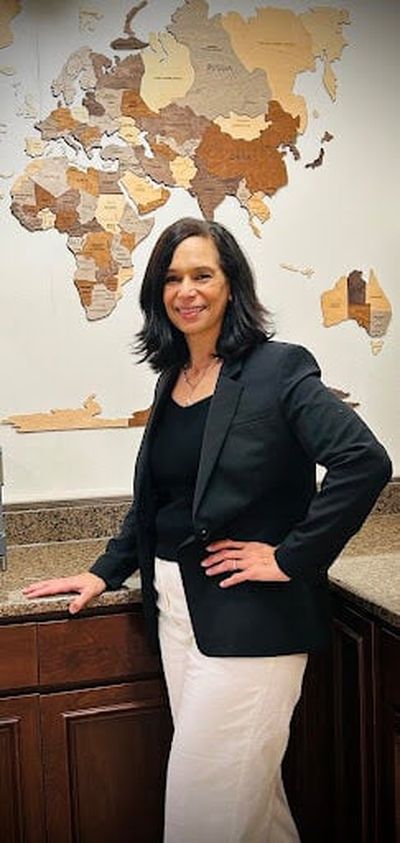When Melinda Manning reflects on her journey from Spokane’s South Hill to countries like Egypt, Uganda and Madagascar, she describes a path shaped by curiosity, conviction, and a deep sense of moral responsibility. Manning, a Ferris High School alumna, began her professional career in government – traveling the world as a diplomat, public servant, and advocate for underserved communities.
After graduating from Western Washington University with a degree in history and political science, Manning returned to Spokane unsure of her next steps. “I knew I wanted to work for the government,” she said. That instinct landed her a job working for Tom Foley, then Speaker of the House. She later moved on to the House Press Gallery, serving as a liaison to print journalists covering Congress.
Though her academic background wasn’t in journalism or communications, Manning’s liberal arts education helped her carve a path.
“One of the things I tell kids all the time is: be interesting or be able to finagle your way into opportunities,” she said with a laugh. “It’s about being open to the unexpected.”
Being nimble led her to international service. While still working on Capitol Hill, she pursued a master’s in higher education administration, focusing on international programs. That pivot opened doors to working with international nonprofits and ultimately joining the U.S. Foreign Service under USAID–the U.S. Agency for International Development. Her work took her to developing nations where she advocated for early language acquisition and Fulbright programs and lobbied for international education initiatives.
Her government career spanned 24 years, rooted in what she calls “a true commitment to public service.”
“I’ve worked with the poorest of the poor,” Manning said, “and the people with the least are often the most generous.” This paradox stuck with her and shaped her worldview: “Sometimes when you have so much, it can cloud your ability to see the power and value in those with less.”
In countries experiencing war, famine, or systemic poverty, Manning says she learned just how deeply human struggle connects us all. “Marginalization is something no one wants to go through. And when we ignore those struggling the most, we miss the chance to be better–individually and as a society.”
This moral imperative – of seeing and serving others–is what brought her full circle, back to Spokane, where she now works with the Thrive Center in a development role.
“Thrive aligned with my values,” she said. “The focus on education, empowerment, and access – it resonated with everything I’ve done internationally.”
Despite her global perspective, returning home hasn’t always felt easy.
“Spokane is more diverse than when I left, but it can still feel isolating,” she said. “Often I’m the only woman of color in the room at fundraising events or development spaces.”
Still, she sees those moments as opportunity. “Nothing is all bad. If I’m the only one in the room, I use that space to expand people’s understanding. Representation matters–because a lot of closed-mindedness comes from lack of exposure.”
Manning also speaks passionately about the importance of DEIA – Diversity, Equity, Inclusion and Access – especially amid the recent political backlash against it. The push against DEIA feels like erasure, she reflects.
“When people say we don’t need it anymore, they’re speaking from a place of privilege,” Manning said. “Not everyone has the same access or opportunity. That’s just reality.”
She emphasizes that DEIA isn’t a threat – it’s a framework for creating space where everyone can thrive. “We should celebrate our differences, not erase them. That’s how we move forward as a human race.”
As a mother of a biracial daughter, Manning understands the complexity of identity.
“There’s power in feeling like you belong,” she said, “but you also have to learn how to make friends, build community, and step into rooms where you might be the only one.”
And sometimes, she added, making change is as simple as speaking up. “Silence is one of the top layers of prejudice. When you think, ‘It’s not my place to say something’ – that’s exactly when you need to say something.”
Manning knows she prefers to work behind the scenes, but she’s willing to step up when the moment calls.
“I don’t like being out front, but if I can help others by being visible, by using my voice, then I will,” she said. “It’s not about spotlight – it’s about service.”
With Thrive Center and beyond, Manning continues to advocate for visibility, access, and collective empowerment.
“We’re all in this together,” she said. “And the more we can see and hear each other, the better off we’ll be.”
